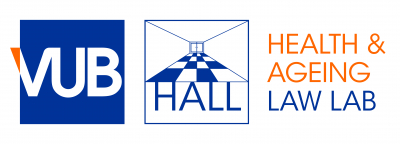
PANEL DESCRIPTION
AI may be far more than an agent for change in the way health data is used, rather it is likely to be a force of immense disruption. This will be felt in several ways, including in the manner in which technologies that depend upon health data are both used and regulated. This disruption will call into question not only the way data is collected and shared, but also the very systems that are designed to regulate the use of health data and associated technologies. This includes use of AI technologies (including foundation/generative models) in the development, quality assurance, oversight and in delivering the functionality of medical devices.
This panel will discuss to what extent current regulatory and other structural paradigms will remain fit for purpose in the coming decades. It will also look the socio-technological perspective of the future of AI, questioning how the regulation of health data and associated AI technologies should focus on both economic and social value creation, avoid information asymmetries, and strengthen our unique European right to access healthcare
Panel Speakers
Stephen Gilbert
Stephen Gilbert is Professor of Medical Device Regulatory Science at the Else Kröner Fresenius Center for Digital Health, Technische Universität Dresden where he teaches and conducts research on regulatory science with a team of colleagues. He worked in senior MedTech and Digital Heath roles in the industry for 5 years, before returning to academia in 2022. His research goal is to advance the regulatory science of software as a medical device and AI-enabled medical devices. Innovative digital approaches to healthcare must be accompanied by innovative approaches in regulation to ensure speed to market, to maximum access of patients to life-saving treatments whilst ensuring safety on the market. My main research interests are in: (i) data sharing and the European Health Data Space; (ii) approaches to market approval of adaptive AI-enabled medical devices; (iii) drug<->digital/AI-enabled medical device product realisation; (iv) digital/virtual twins: as an organising concept of the future of healthcare.
Bart de Witte
Bart de Witte is a luminary in the dynamic realm of Artificial Intelligence (AI) within the healthcare sector. With a profound impact on the landscape, Bart serves as a guiding force in navigating the intricate balance between AI's potential benefits and the pitfalls it poses to healthcare accessibility. Having transitioned from a successful tenure at IBM, Bart is the visionary founder of the Hippo AI Foundation, a non-profit organization, based in Berlin committed to accelerating open collaboration and innovation pushing the open-source agenda for healthcare. His mission revolves around fostering data solidarity and promoting active patient participation, addressing the critical need to democratize AI in healthcare and mitigate the risk of data monopolies that could reshape the medical field. Bart's influence extends globally, as evidenced by his roles as a scientific board member and advisor, where he actively shapes policy decisions at the nexus of technology, innovation, and healthcare. His dedicated counsel to governments, including prominent positions with the World Health Organization (WHO) and the United Nations Office of the Secretary General, underscores his commitment to reshaping the global healthcare landscape. Recipient of the prestigious German AI Awards, Bart's groundbreaking projects, such as leveraging AI to address breast cancer, exemplify his dedication to tackling global challenges aligned with the United Nations Sustainable Development Goals (SDGs). Bart de Witte is a well-known speaker, author, lecturer and entrepreneur. In his enlightening talks, Bart not only explores a visionary perspective on regenerative AI but also poses a crucial question often overlooked by ethical frameworks: who owns the future of AI?
David Murphy
David Murphy is a Deputy Commissioner at the Data Protection Commission Ireland, responsible for supervision activities across the Public, Health, and Voluntary Sectors. Having joined the DPC in 2016, David has worked in the area of consultative engagement, providing best practice guidance and advice to organisations in both the public and private sectors on compliance with the data protection legislative frameworks. David participates in the work of the European Data Protection Board, on behalf of the DPC, on matters relating to public policy and health. He also frequently represents the DPC as a conference and event speaker on data protection topics.
Jaisalmer de Frutos
Jaisalmer de Frutos is Policy Officer for the Digital Transformation Cluster at the European Public Health Alliance. In 2020, she obtained a PhD in Medical and Health Sciences, under a joint agreement between Universidad Autonoma de Madrid (Spain) and Edith Cowan University (Australia). In 2022, Jaisalmer was selected to take part in Unleash Social Innovation Lab, in India. She also has prior experience working for the European Institutions, providing feedback to policy at HaDEA and monitoring health projects at EISMEA.
Currently, Jaisalmer contributes to the development of people-centered digital policies that enhance population health. She works to ensure that equity, privacy, autonomy, and accountability are at the bases of the design and deployment of digital health tools, including artificial intelligence-based tools. Moreover, she advocates for ethical use of health data by healthcare workers, researchers, innovators, and policymakers, especially in the light of the creation of the European Health Data Space.
Laura Caroli
Laura Caroli is a Senior Policy Advisor at the European Parliament where she has worked since 2014 for MEP Brando Benifei (S&D), on whose behalf she has led negotiations on the AI Act at technical level. Experienced in Internal Market, AI, digital affairs as well as foreign affairs, defence and human rights. She previously worked at the Italian Parliament and the Italian think tank “Italianieuropei” in Rome. She holds a PhD in Geopolitics from the University of Trieste.
Registration
For visitors who are interested in our symposium, you can register via the registration form.

